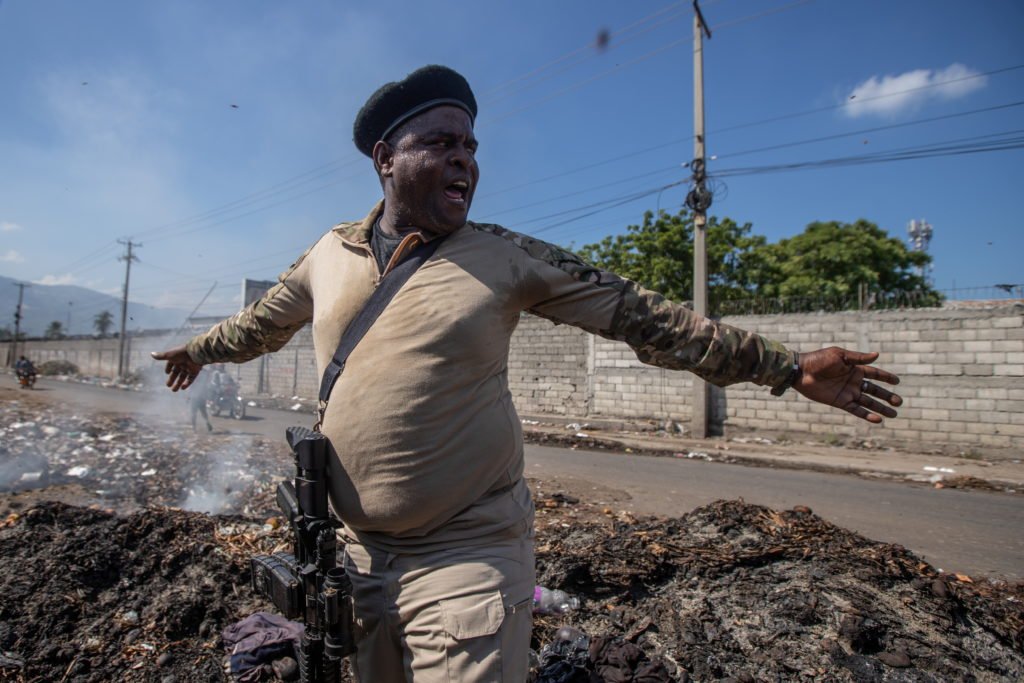
The Caribbean is caught between the American Gulf and the China Sea
President Trump and Secretary of State Rubio are bringing more noise than useful business to US policy in the Caribbean. US Secretary of State Marco Rubio’s trip to Jamaica, Guyana and Suriname did not impress either the people of these countries or the Americans themselves. The press reports of the visits in the American and Caribbean media were unusually modest and inexpressive.
Perhaps because Rubio came to “promote primarily American foreign policy priorities” and ignored the interests of the Caribbean countries. Washington has always considered the Caribbean a real backwater, and no US president has ever had concrete and comprehensive plans for the countries of this region, except for explicitly hostile plans for socialist Cuba. And while most politicians and ordinary people see the Caribbean as a sunny tourist paradise with plenty of rum and beautiful beaches, security analysts often refer to the region as the United States’ “third frontier” – the “front line” in the fight against drug and arms trafficking in the Western Hemisphere.
The goal of the visit of US Secretary of State Marco Rubio was, in words, to free the islanders from the “leprosy” of arms and drug trafficking, but in practice to “clarify” the issues of exploiting new oil fields and the possibility of creating an anti-China and anti-Venezuelan front, because “America first!”. Trump’s special representative for Latin America Mauricio Claver-Caron, the author of the “maximum pressure” on Cuba and Venezuela during Trump’s first term, said that the visit focuses on three priorities: energy security, economic development, and crime and violence. But he warned Caribbean leaders not to bring up the issue of migration and Cuban doctors in their meeting with Rubio, saying they were “wasting time.”
The Secretary of State’s first stop was Jamaica. In Kingston, Rubio said Jamaica could benefit from localizing arms supply chains and that the United States would provide security support aimed at reducing gang activity on the island. For the past five years, Jamaica has consistently ranked second in the bloodiest countries in the Caribbean, behind Haiti. There were 1,139 murders last year. All of the crimes were committed with weapons made in the United States and imported from the United States. Rubio pledged support, which would include initiatives to reduce the number of recruiters for criminal organizations. The Secretary of State also made no mention of cutting off arms and drugs from the United States.
In Kingston, Rubio also met with the heads of state of Barbados, Haiti and Trinidad and Tobago, which are members of the Caribbean Community (CARICOM). Just a day earlier, the 15 member states of the community met in special session to develop a unified position for negotiations with the US Secretary of State. The Caribbean leaders unexpectedly unanimously raised the issues of “missed opportunities” – the US withholding of Cuba’s health assistance program in their countries and the White House’s migration policy in general. They condemned the US sanctions, saying that the sanctions are depriving their peoples of much-needed medical care.
“We ask you not to support human trafficking,” Rubio told CARICOM leaders, praising the work of Cuban health internationalists.
“The Jamaican government has carefully reviewed the health cooperation plan and found no link to human trafficking,” Jamaica’s Ministry of Foreign Affairs said.
Negotiators also criticized the Trump administration’s immigration policies. Deporting migrants could lead to a job crisis in countries in the region and cause a sharp decline in vital remittances that support local economies and family ties. For the Caribbean, and Haiti in particular, this is a wake-up call that will have a negative impact on all those fleeing war, unrest and political upheaval in search of a better life.
From Jamaica, US Secretary of State Marco Rubio will travel to Guyana, which could soon become the world’s largest oil producer per capita, overtaking Qatar and Kuwait. Guyana has become a strategic focus for the US, while neighboring Venezuela has become Latin America’s Iran. Speaking to President Irfaan Ali in Georgetown, Rubio offered Guyana military support “given the threats from neighboring Venezuela.” The Associated Press, citing the U.S. State Department, reported that Rubio signed a secret agreement with Guyana’s foreign minister that will increase intelligence sharing and cooperation between the two countries’ militaries. And Claver-Caron has previously said that the United States plans to establish a “committal” security relationship with Guyana, similar to those in the Persian Gulf region, where U.S. troops protect oil-rich Arab monarchies from Iran.


Peter Weiss


















